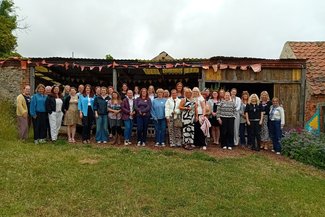The challenges facing London's women and girls
Women and girls with multiple unmet needs in London are consistently overlooked in policy and practice. The fragmented and siloed nature of public services makes navigating services challenging, and women and girls with interrelated, overlapping needs are likely to be in contact with numerous services simultaneously.
This failure to recognise and respond to their distinct needs/experiences increases the levels of risk, vulnerability and inequality young women with multiple unmet needs face – meaning many ‘fall through the gaps’ - escalating the impact of trauma and harm.
The cost-of-living crisis and local councils’ austerity measures are driving more women and girls to crisis points. We know from our research these systemic failings particularly impact girls or young women at risk of school exclusion, in contact with the criminal justice system, and Black, Asian, migrant and minoritised women and girls.
Yet, there is currently no active cross-cutting strategic approach to ensure consistent, specialist and holistic support to meet their distinct needs is available.
Long-term systems change, led by women with experience
This project will bring together a London-based network of women and girls who have faced multiple unmet need, and the expertise of our alliance members, to ensure those with experience of the challenges women and girls are facing in the city can speak directly to decision-makers.
These networks will be supported to develop their skills in areas such as policy writing, data analysis, research methods, and public speaking. Together, they will co-design and deliver research to measure the issues and develop recommendations.
Specialist services need change too
The lack of earlier support from schools, statutory and health services not only pushes women into more harm, but leaves small, frontline services, like many across our membership, to pick up the pieces.
These charities are overwhelmed by more women and girls needing support, who have increasing levels of need that take more time and resources to resolve.
Women’s charities already receive an unfair share of funding and are now reaching breaking point.
As well as improving lives, Agenda’s emphasis on building effective early intervention and multi-agency work aims to relieve pressure on frontline services, enabling more sustainable and trauma-informed ways of working.
This project is supported by a ten-year grant from City Bridge Foundation.




